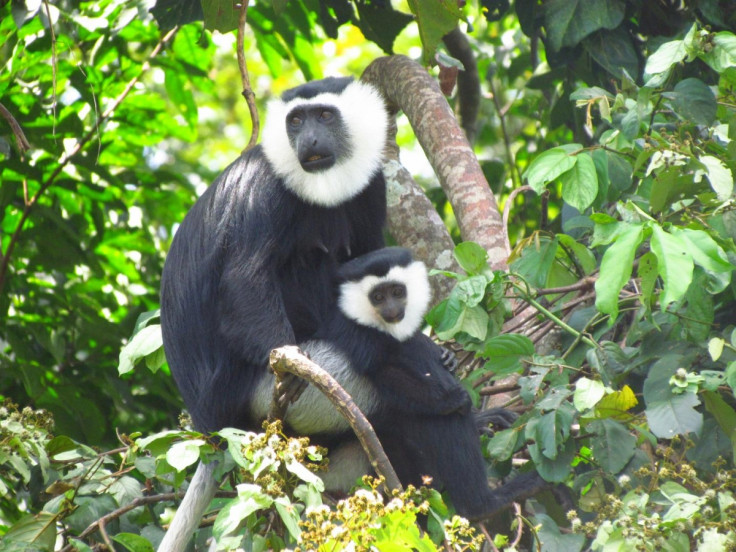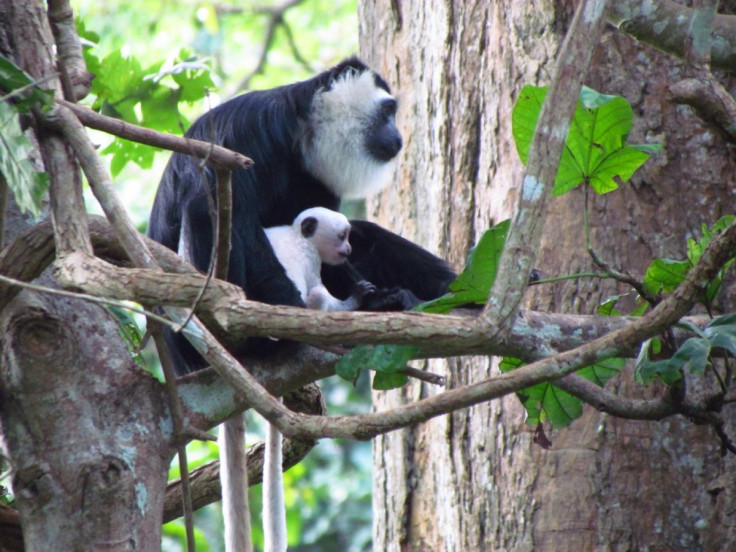Infanticide: Baby monkeys develop faster when threatened by death

Some baby monkeys develop faster than others because of the threat of infanticide – being killed by an adult male that isn't the baby's father, scientists have said. A study, published in Animal Behaviour, suggests mothers could force their young to develop quicker, so that they are not at risk of being killed.
"Infanticide occurs in many animals, including lions, bears, rodents, and in primates," said lead author Iulia Bădescu. "Typically, an adult male kills an infant sired by another male so that he can mate with the mother and sire his own infants with her."
The scientists studied nine groups of ursine colobus monkeys in Ghana, from 2007 to 2014. They watched baby monkeys grow up in these groups.
When a baby monkey is born, their fur is a pure white colour. After a few weeks it turns grey, and then finally to black and white after two to five months. The researchers based a monkey's development on when their fur changed colour.

In groups of monkeys that featured more adult males – or even just a few particularly aggressive males – the baby monkeys were found to develop quicker.
Pascale Sicotte, researcher working on the study, said: "We found that infants facing a greater risk of infanticide developed faster than infants facing lesser risk."
The researchers, from the University of Toronto, also found that young male monkeys developed quicker than young females. They suggest this is because baby males are targeted by aggressive adult males; they see them as a future threat.
It is still unclear how the monkeys develop faster, but the researchers suggest that it may be to do with their mother. They say that when a mother believes there is a chance that her baby could be killed, she begins to get stressed.
This releases hormones which are transferred to the baby through her milk. In turn, these hormones make the baby develop quicker. The scientists now aim to prove this theory.
© Copyright IBTimes 2025. All rights reserved.






















